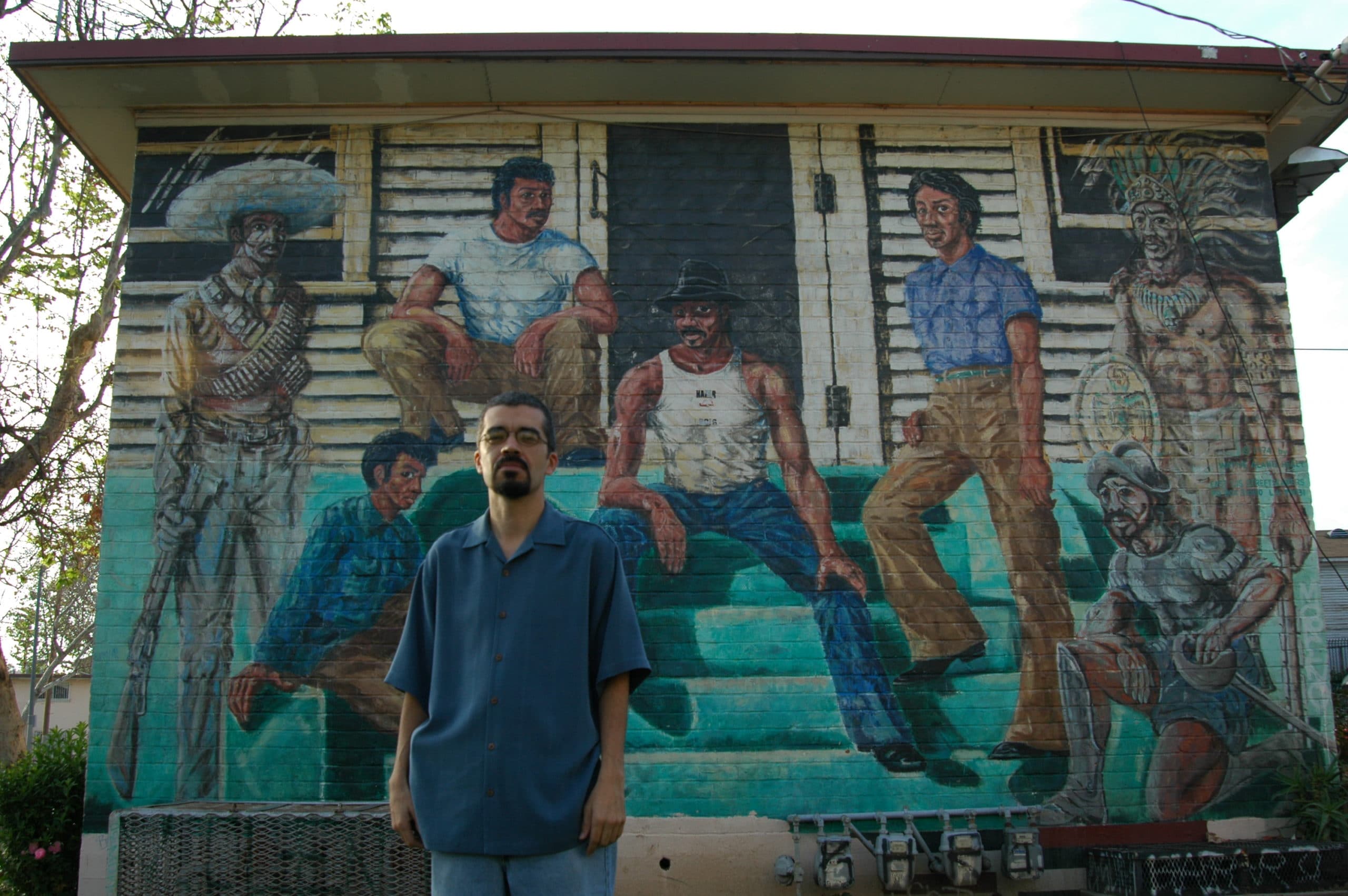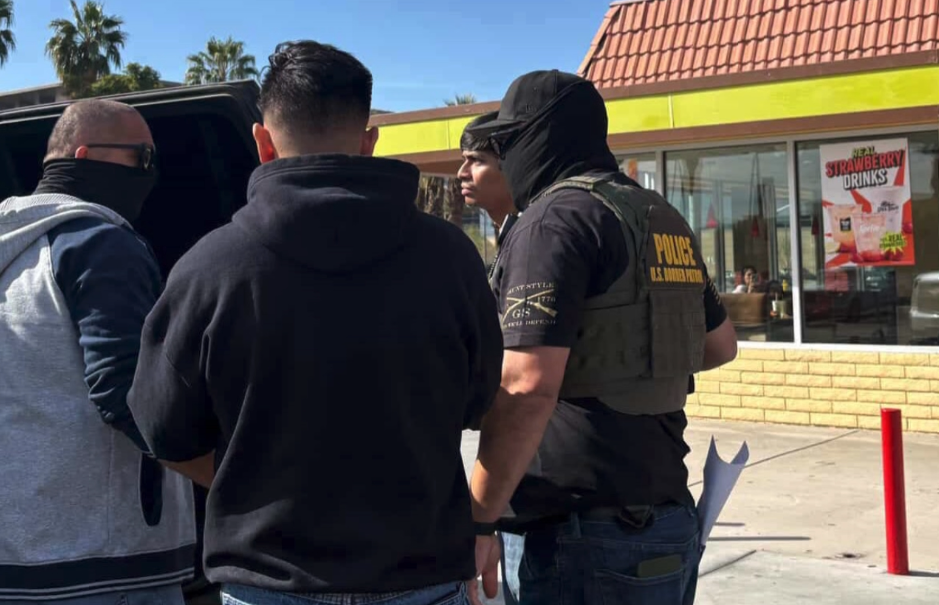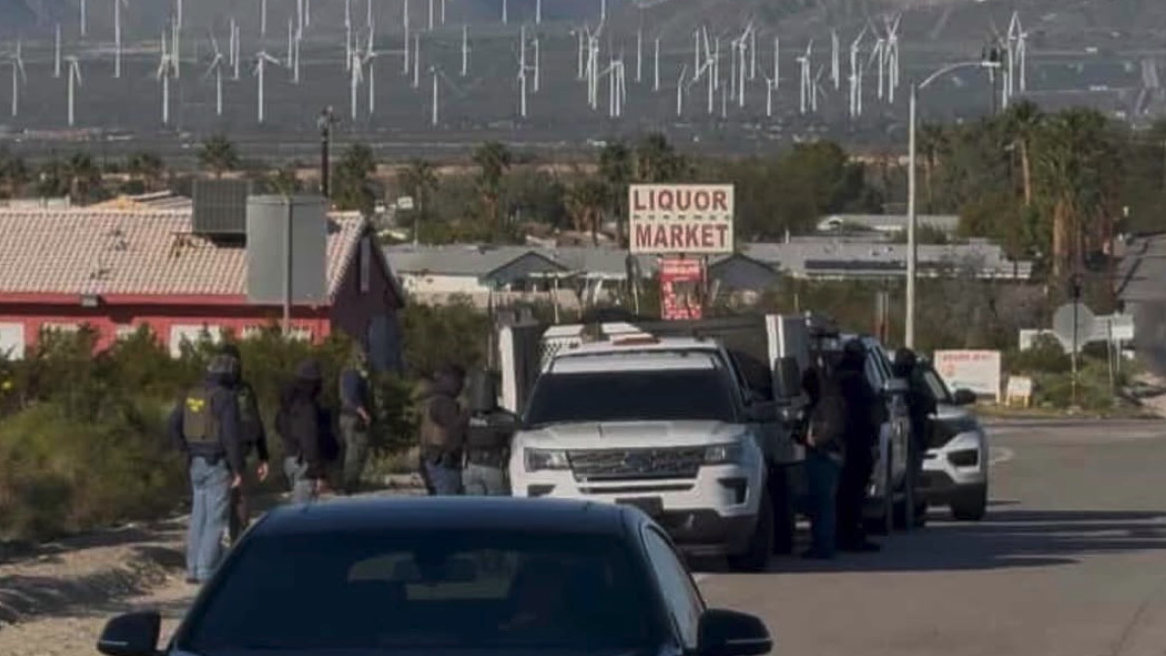Welcome back to L.A. Taco’s column, “Barrio Wisdom.” In this series, we follow the streets-meet-academia wisdom of Dr. Álvaro Huerta, a professor at California State Polytechnic University, Pomona. In this installment, he writes about how an upbringing in East L.A.’s barrios taught him to fear the cops, and then hate them.
[dropcap size=big]G[/dropcap]rowing up in the streets of East Los Angeles—Ramona Gardens public housing project or Big Hazard projects—I witnessed and experienced police abuse. For myself, along with childhood homeboys and siblings, it occurred so frequently, where I naively thought that all Americans feared the cops. It first starts as fear; it then morphs into hate.
“Hands up.” “Hands behind your back.” “Get against the wall.” “Get on your knees.” In the projects and other racialized communities, in contrast to the suburbs, the cops represented (to the present) military occupation forces. Hence, why should we cooperate with them? Why should we inform or snitch on our Brown or Black neighbors? This is why many create their own street code—our own mores or morality to survive. Trust and respect must be earned!
It’s all about context. In the suburbs, when something bad happens, the privileged residents don’t hesitate to call the cops for prompt responses. In the projects or America’s barrios, that’s a recipe for disaster. You call the cops and then you often become the suspect. How is it that for those of us who grew up in the barrio, when pulled over by the cops, frequently “fit the description?” I guess all minorities look alike.
As a Chicano kid who loved to play sports, where my “gang application” was rejected for being too thin, I remember the first time the cops harassed my friends and I. When bored, we would jump the fence at Murchison Street Elementary to play in the schoolyard. One day, the cops arrived in several patrol cars, where they forced us on our knees with our hands up for what seemed an eternity. The asphalt was hot! We were just poor, Brown kids playing baseball with used gloves and torn baseballs. We weren’t white nationalists “protesting” with tiki torches in Charlottesville, Virginia. We weren’t white militia (heavily armed) taking over the Michigan Capitol in Lansing. As Brown kids, we received a clear message from the state that took me years to figure out, as I gained political consciousness: “We’re treated like foreigners in our own land.”
I guess they couldn’t wait for the courts to inflict bodily and mental pain on the alleged suspects? I guess the legal concept of “innocent until proven guilty” doesn’t apply to Black and Brown bodies? On too many occasions, their cruelty resulted in the murder of Black and Brown people.
On a regular basis, the cops patrolled the projects and hunted “suspects.” Just like the abject poverty we experienced, patrol cars and helicopters were omnipresent. Before taking the “suspects” fished out of L.A.’s barrios to be booked at the Hollenbeck Police Station, the cops would often rough up the homeboys. I guess they couldn’t wait for the courts to inflict bodily and mental pain on the alleged suspects? I guess the legal concept of “innocent until proven guilty” doesn’t apply to Black and Brown bodies? On too many occasions, their cruelty resulted in the murder of Black and Brown people.
If that’s not criminality, like in the case of Eric Garner in New York or, more recently, George Floyd in Minneapolis (among others), I don’t know what is? Countless Chicanos have been killed by the cops, like in the case of Jose Mendez, a 16-year-old killed on February 6, 2016, in East Los Angeles. The most famous case of a Chicano killed by the cops goes back to August 29, 1970, with the murder of the journalist Ruben Salazar during the massive Chicano Moratorium protest.
Of the many times the cops pulled me over and harassed me, the closest I got to death was when a cop (LAPD) pulled a gun on me. What “crime” did I commit? I made a rolling stop while teaching myself how to drive the 1967 Ford Mustang my sister Catalina gifted me. While I was nervous looking at the barrel of his black, shiny gun, truth be told, I wasn’t traumatized. Yet, I could’ve easily been killed. What if I made a wrong move? What if I said the wrong thing? What if I started to run out of panic or fear? At the end of the day, I was already desensitized to the state violence or the threat of it in the projects! Even when my Mexican mother Carmen heard the news via the “comadre network” (more powerful than DSL, especially since she didn’t have internet back in the day), she didn’t panic or flinch. As I rushed to watch my favorite television program, Good Times, she calmly asked me: “¿Tienes hambre?”
We must stop systemic police brutality against Brown and Back bodies for the sake of America’s humanity.
Once I left the projects as a 17-year-old math major at UCLA, it seemed like the cops followed me from the Eastside to the Westside. One day, while driving my 1970 VW Beetle with my classmates in West Los Angeles, two cops pulled us over for no reason. “What are you all doing in this neighborhood?” one cop demanded to know. While we didn’t get “the talk” that Black parents have with their kids, we knew the dire consequences of demanding our civil rights, where we peppered our responses with: “Yes, sir; no sir.” After being harassed, we were quickly reminded that we don’t belong.
Years later, once I became a community activist, my younger brother Noel informed me of the terrible news that the cops (Los Angeles County Sheriffs) killed a resident from the projects, Arturo “Smokey” Jimenez. Smokey, a friend of my younger brothers, was 19 years old and unarmed with the cops killed him on August 3, 1991. The killing of Smokey, by Deputy Jason Mann, resulted in an uprising. Eventually, apart from a state investigation, the civil rights attorney R. Samuel Paz successfully sued and settled on behalf of Smokey’s family for wrongful death against Deputy Mann/Sheriff’s department for $4520,000. Unfortunately, in terms of abuse case (more like cases of brutality!), this legal victory is the exception—not the rule.
¡Ya Basta!
We must stop systemic police brutality against Brown and Back bodies for the sake of America’s humanity.







